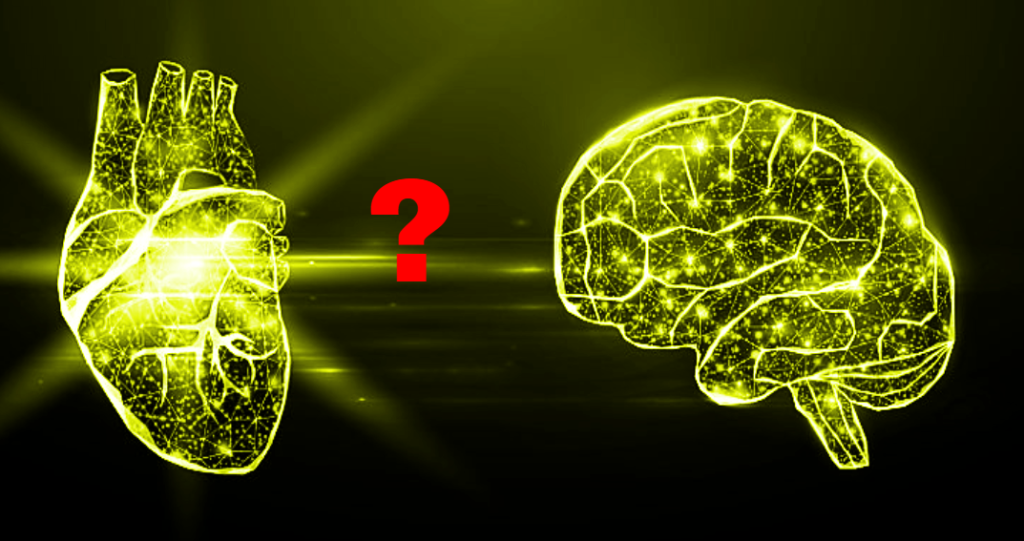
Does Thinking Happen in the Heart or the Brain?
The Qur’an mentions hypocrites, saying, “They have ears but do not hear; they have eyes but do not see; they have hearts but do not reason.” (Qur’an 47:24 also states), “Do they not reflect upon the Qur’an, or are there locks upon their hearts?”
When non-Muslims read such verses, they ask, “Isn’t thinking done by the brain? Why does Allah refer to the heart? The heart’s function is not to think, right?” Hence, they seek a proper explanation.
Throughout history, beliefs about where human thought occurs have evolved.
In the past, people universally believed that all activities like thinking, feeling joy, showing compassion, or experiencing jealousy occurred in the heart. This belief transcended nations and languages.
Later, a distinction arose where intellectual functions were attributed to the brain, while desires and emotions were linked to the heart. Even though modern science has progressed, many ordinary people still hold this view today.
Common phrases reflect this perspective:
- When someone performs poorly in studies or thinking, people ask, “Do they even have a brain?”
- When someone is cruel, greedy, or lacking compassion, people say, “Do they even have a heart?”
Such phrases illustrate how people traditionally attribute thinking to the brain and emotions to the heart.
During the intermediate period, this was the belief held by people worldwide. It continues to persist among ordinary people even today.
Modern science rejects both these historical perspectives. Today, science confirms that the heart’s primary function is to pump blood throughout the body and nothing more.
All activities related to thinking and emotions are determined by the brain. Thinking, worrying, feeling joy, greed, or anger—all these functions are decided by the brain. This is the current conclusion of modern science.
Statements like, “You have no place in my heart,” are now considered scientifically inaccurate. Scientifically, one should say, “You have no place in my brain,” as both love and hatred are functions of the brain.
Key Explanation for the Qur’anic Verses:
If the Qur’an had stated that thinking occurs in the brain instead of the heart, it would align well with modern scientific findings.
However, during the time of the Qur’an’s revelation, the global belief was that thoughts and emotions originated in the heart. If the Qur’an had mentioned the brain instead of the heart, people of that era might have rejected it, saying, “Why does the Qur’an say something that contradicts reality? Thinking and feeling happen in the heart, not the brain.”
If the people of that time had rejected the Qur’an, it might not have been preserved and passed down to us today. Hence, the Qur’an refers to the heart because it aligns with the belief system of the people at that time.
Modern readers might question why the Qur’an doesn’t explicitly state that the brain is responsible for thought. Yet, the Qur’an was revealed in a way that it could resonate with every generation, including those of the past who believed in the heart’s role in cognition.
The word “qalb” (قلب) in Arabic has meanings that encompass both “heart” and “mind.” Classical Arabic literature used “qalb” to refer to both the heart and the brain. This is evident in pre-modern Arabic dictionaries such as Lisan al-Arab and Mukhtar al-Sihah, which state that “qalb” denotes reasoning, intellect, and heart.
Allah, with His infinite wisdom, chose the term “qalb” as it was appropriate for every era. During the Qur’an’s revelation, people believed that thinking occurred in the heart, so translators rendered “qalb” as “heart” without dispute.
In our modern times, where the brain is scientifically proven to govern all cognitive functions, “qalb” should be understood as referring to the brain. This interpretation aligns with Arabic lexicon and does not contradict the Qur’an’s intent.
Qur’anic Usage of “Qalb”:
In verses related to reasoning, such as 6:25, 7:179, 9:87, 9:93, 17:46, 18:57, and 63:3, the word “qalb” refers to the brain. Translating it as “heart” in these contexts is incorrect.
In only two verses—33:10 and 40:18—does “qalb” explicitly mean “heart.”
In all other instances, “qalb” denotes the brain. The contexts and meanings of the verses support this understanding.
The Qur’an’s linguistic choice allows its verses to remain relevant across all eras.
Only a being with complete knowledge of the future could structure the text to be universally applicable. The Qur’an’s reference to “qalb” accommodates both ancient beliefs and modern scientific understanding.
What may seem like a weakness to critics actually demonstrates the Qur’an’s divine origin. Its words were preserved in a way that resonated with the beliefs of the past while being validated by future discoveries.
This timelessness is one of the proofs of the Qur’an’s divine nature.
(Adapted from the book “Arthamulla Kelvigal, Arivuppurvamaana Bathilgal” [Meaningful Questions, Intellectual Answers] by P.J.)
